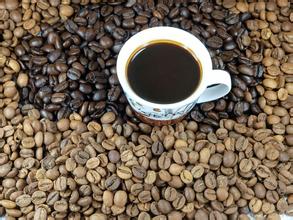Jamaica Clifton Manor Coffee Flavor Description
Flavor description of Clifton Manor Coffee in Jamaica
By 1981, about 1500 hectares of land in Jamaica had been reclaimed for coffee cultivation, followed by the opening of another 6000 hectares of coffee land. In fact, today's Blue Mountain area is a small area with a planting area of only 6000 hectares, and it is impossible to grow all the coffee marked "Blue Mountain" there. Another 12000 hectares of land is used to grow two other types of coffee: Alpine Top Coffee and Jamaican Superior Coffee. As Japan has always invested in the Jamaican coffee industry, Blue Mountain Coffee is mostly owned by the Japanese. They also got the right to buy Blue Mountain Coffee. In 1992, Jamaica sold 688 tons of Blue Mountain coffee to Japan, 75 tons to the United States and 59 tons to Britain. 90% of Blue Mountain coffee is bought by the Japanese. Since the rest of the world can only get 10% of Blue Mountain coffee, regardless of the price, Blue Mountain coffee is always in short supply. The real Blue Mountain coffee is made from the best local raw beans, which is the pleasure of tasters. Its flavor is rich, balanced, fruity and sour, and can meet people's various needs. In addition, the high-quality fresh Blue Mountain coffee has a long-lasting flavor, as drinkers say, with a long aftertaste.
Some small estates also grow Blue Mountain Coffee, such as Wallenford Estate, Silver Hill Estate and Atlanta Estate in J.Martinez. Even the largest landowners in the region are small-scale growers by international standards, many of whom are small landowners whose families have been working on the land for two centuries. The coffee industry in Jamaica faces a series of problems, such as the impact of hurricanes, the increase in labor costs and the difficulty of mechanizing terraces. It is difficult for many small estates and farms to rationalize the cultivation of Blue Mountain Coffee, which differs from other coffee in that it is transported in barrels with a capacity of 70 kilograms, a replica of Bonifieur barrels produced in Guadeloupe in the last century. The barrel was originally used to carry flour shipped from the United Kingdom to Jamaica, usually with a trademark and the name of the manufacturer. The Coffee Industry Council issues certificates for all authentic Jamaican coffee and bears a stamp of approval before export.
The Jamaican government used to insist that all Blue Mountain coffee is roasted in Jamaica to ensure that the quality remains the same. In fact, baking is a fine art, and it takes experience, training and expensive equipment to do a good job. From the consumer's point of view, coffee beans should be obtained and drunk immediately after baking. Coffee roasting in Jamaica is unlikely to meet this requirement. Now, raw coffee beans from Jamaica can be exported.

Important Notice :
前街咖啡 FrontStreet Coffee has moved to new addredd:
FrontStreet Coffee Address: 315,Donghua East Road,GuangZhou
Tel:020 38364473
- Prev

Introduction to the flavor description of coffee beans grown at altitude in the jadeite manor of Panama
Description of the flavor of coffee beans grown at an altitude in the Emerald Manor of Panama Panama has been among the best coffee producers in the world since three years ago, which has surprised countries that have been in the vanguard of developer production for many years. Panamanian coffee is mainly produced in the west near the Costa Rican border, producing the best washed coffee. Compared with the middle and low elevations
- Next

Introduction of Hartmann Manor in Panama Coffee Bean Grinding scale production area Variety treatment Manor
Panamanian Hartmann Manor Coffee Bean Grinding scale production area Variety treatment method Manor introduces the land of Pocket, there is a very cost-effective bean. And has a very beautiful name Flower Butterfly. She has 40% high-quality Rosa pedigree, composed of Rosa, Kaddura and Kaduai, planted in the Baru volcano region of Pokut, growing at 1600 meters above sea level.
Related
- Does Rose Summer choose Blue, Green or Red? Detailed explanation of Rose Summer Coffee plots and Classification in Panamanian Jade Manor
- What is the difference between the origin, producing area, processing plant, cooperative and manor of coffee beans?
- How fine does the espresso powder fit? how to grind the espresso?
- Sca coffee roasting degree color card coffee roasting degree 8 roasting color values what do you mean?
- The practice of lattes: how to make lattes at home
- Introduction to Indonesian Fine Coffee beans-- Java Coffee producing area of Indonesian Arabica Coffee
- How much will the flavor of light and medium roasted rose summer be expressed? What baking level is rose summer suitable for?
- Introduction to the characteristics of washing, sun-drying or wet-planing coffee commonly used in Mantenin, Indonesia
- Price characteristics of Arabica Coffee Bean Starbucks introduction to Manning Coffee Bean Taste producing area Variety Manor
- What is the authentic Yega flavor? What are the flavor characteristics of the really excellent Yejasuffi coffee beans?

